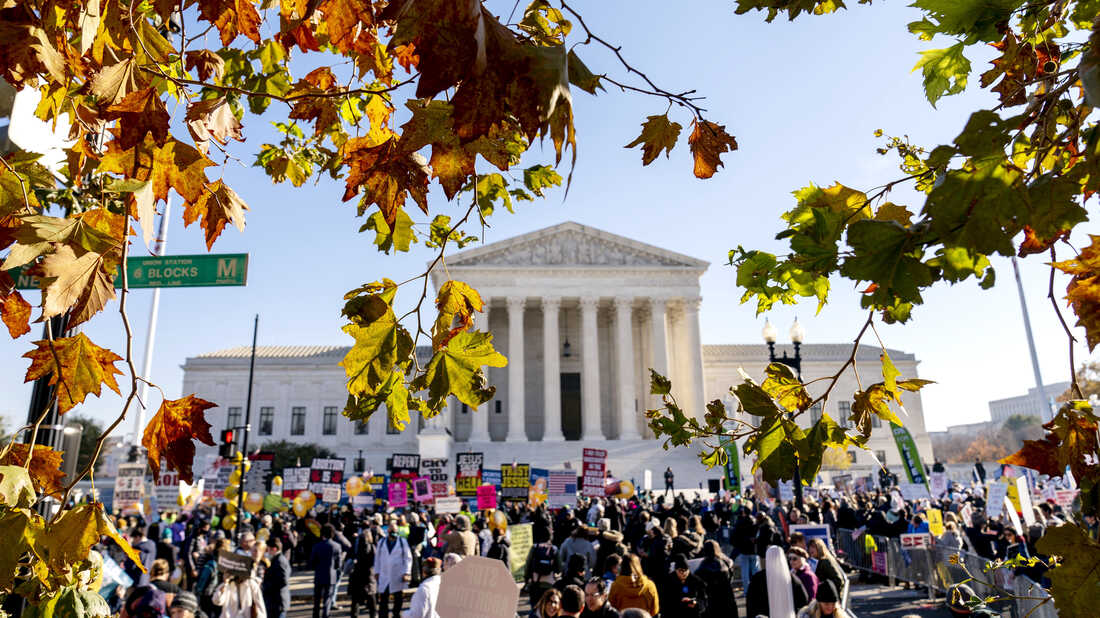
Abortion-rights advocates and opponents demonstrate in front of the U.S. Supreme Court as the court heard arguments in a case from Mississippi, where a law would ban abortions after 15 weeks of pregnancy, well before fetal viability. Andrew Harnik/AP hide caption

Abortion-rights advocates and opponents demonstrate in front of the U.S. Supreme Court as the court heard arguments in a case from Mississippi, where a law would ban abortions after 15 weeks of pregnancy, well before fetal viability.
Andrew Harnik/APDuring oral arguments last week in a major Supreme Court case, Justice Amy Coney Barrett brought up the idea of adoption as an alternative to abortion. But many people who choose not to have a child do not consider adoption and abortion equal and opposite choices, sociologist Gretchen Sisson tells NPR.
Plus, one woman shares her experience of relinquishing her rights as a parent.
Email us at
This episode was produced by Amy Isackson, Ashley Westerman, and Brent Baughman. It was edited by Ashley Brown and Sarah Handel, with help from Krishnadev Calamur and Sarah McCammon. Our executive producer is Cara Tallo.

 Live Radio
Live Radio